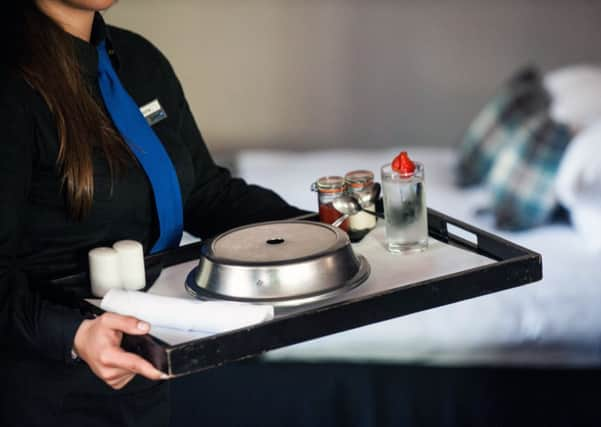Government rules out bed tax on Edinburgh tourists


City chiefs contacted ministers to discuss a voluntary “transient visitor levy”, under which a fee would have been charged for every night’s stay in the Capital.
But the idea has foundered amid concern over reliability of income and whether enough hotels, B&Bs and guest houses would sign up.
Advertisement
Hide AdAdvertisement
Hide AdPlans for a compulsory tax – which would have added between £1 and £2 per night to a room bill – were backed by the city council in 2011 and could have raised up to £10 million for festivals, venues and conference centres.
However, those proposals, which required new legislation from the Scottish Parliament, were later scrapped after receiving a “cool response” from ministers.
City bosses are now considering whether to create a Tourism Business Improvement District (TBID), which would see hotels and other companies pay levies to fund a range of urban improvements.
Hotel managers in Edinburgh said they doubted a voluntary bed tax would work. Tristan Nesbitt, chairman at the Edinburgh Hotels Association (EHA), said: “The compulsory tourist levy was widely considered in 2011-12 and ultimately dropped as it was not deemed a fair, suitable and efficient way to raise additional funding.
“Those same reasons still apply to the business environment today and therefore it is difficult to see how a voluntary scheme would be feasible or desirable by members of EHA.
“Edinburgh’s hotels would oppose being singled out as the only tourism segment to be faced with another additional cost imposed on them, while many other forms of accommodation, restaurants, attractions and retailers, also closely linked to tourism, would not be included.”
He added: “We would also worry that this additional cost could make Edinburgh even less price competitive as a European destination to travellers on top of some of the highest VAT taxes and Air Passenger Duties in Europe.”
But festival promoters said it was unlikely large numbers of high-paying overseas tourists would be put off by a bed tax, particularly during the Fringe.
Advertisement
Hide AdAdvertisement
Hide AdTommy Sheppard, director of The Stand comedy club in York Place, said: “I think it might have a deleterious effect on the weekend break market, particularly in the off-peak months.
“But in terms of peak demand, I don’t think it would present a great barrier compared to the considerable charges already being levied, and it creates a pot of money that’s ring-fenced for visitor improvements.”
Councillor Alasdair Rankin, finance leader, said: “The idea of a voluntary Transient Visitor Levy has now been ruled out, however Marketing Edinburgh continues to explore options around a TBID for the city.”
Tax is global
ALTHOUGH the “bed tax” has been resisted in Scotland and the UK, it has been used around the world.
New York, Venice and Vancouver are among travel destinations which have introduced the charge on stays in their hotels.
And in Rome, the tax depends on the quality of accommodation, with tourists paying an extra €2 per person per night if staying in hotels up to a three-star rating, and an extra €3 if they have chosen to stay in a four or five-star establishment.